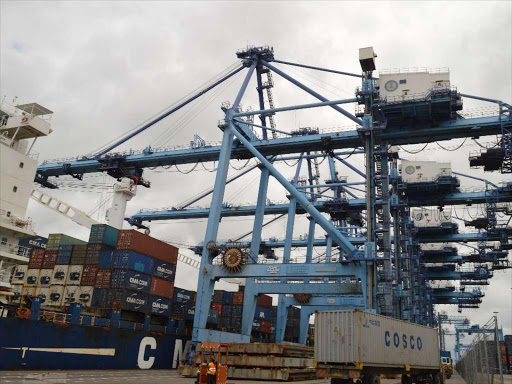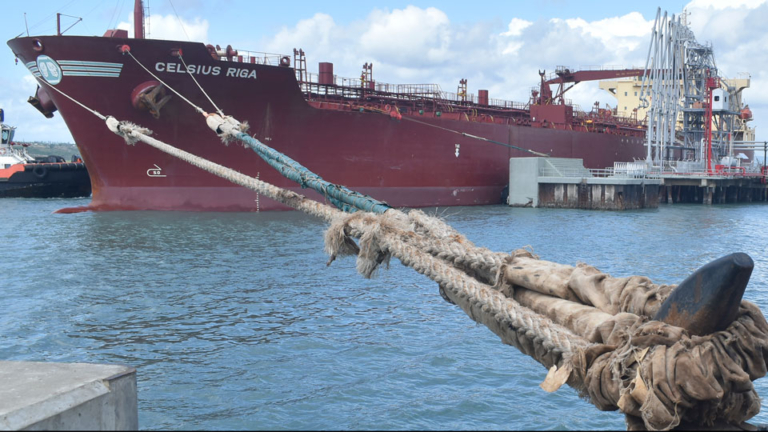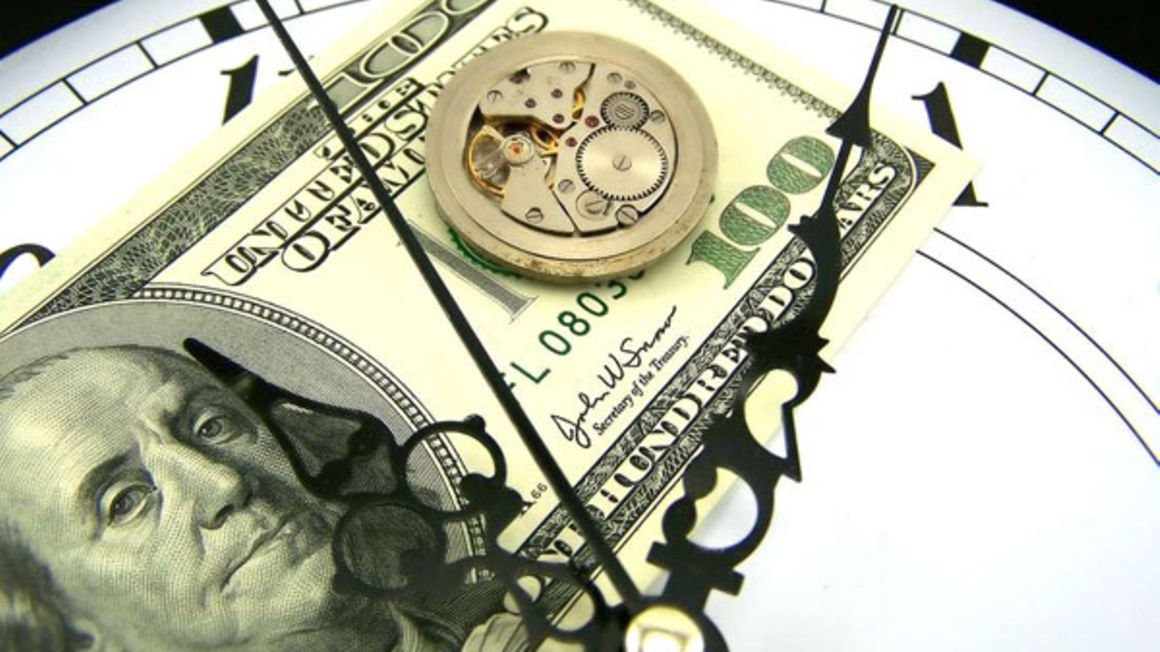Ntaghacha
JF-Expert Member
- Jul 28, 2020
- 1,412
- 4,120
China could seize Mombasa port over Sh364bn SGR loan
Auditor reveals Kenya Ports Authority assets are attached as security for China Exim Bank loan.
In Summary
KPA is referred to as the borrower, contrary to details that KPA’s only obligation was to facilitate or rather guarantee minimum freight volumes.
The borrowers – KPA and Kenya Railways Corporation - gave up claim to any immunity from legal proceedings or any of their assets.
by MOSES ODHIAMBO
Political Writer
News
15 March 2021 - 05:00


BUSY: Containers at the Port of Mombasa .
Image: JOHN CHESOLI
The port of Mombasa could be under the control of the Chinese if the government defaults on the Sh364 billion SGR loan.
The Auditor General reveals that the assets of Kenya Ports Authority were used as collateral for the Sh363.96 billion Standard Gauge Railway loan.
In a report tabled in Parliament, the Auditor General reveals officially for the first time that Kenya waived its immunity in the event of a legal dispute linked to default of servicing the loan.

The borrowers – KPA and Kenya Railways Corporation - gave up claim to any immunity from legal proceedings or any of their assets.
This would be in respect of any cases filed today or in future in connection with the agreement.
“Under this clause (17.5) the borrowers – KPA and KRC - agree that any proceedings against them or their assets in connection with the agreement, no immunity from such proceedings shall be claimed by it or with respect to its assets.
“…and they irrevocably waive any right of immunity whether characterised as sovereign immunity or otherwise,” the report, which has just surfaced despite being signed by former Auditor General Edward Ouko in April 2019, reads.
In what brings the risk closer to home, KPA is referred to as the borrower, contrary to details that KPA’s only obligation was to facilitate or rather guarantee minimum freight volumes.
This means a default on the part of Kenya in respect of the SGR loans would see the country surrender KPA assets, the main one being the Mombasa port.
“KPA assets are exposed to the risk of takeover by the lender since the authority signed the payment arrangement agreement,” the audit reads.
Also troubling, the auditor pointed out, is that “KPA shall make good any shortfall arising either on account of failure to reach the minimum volume of cargo.”

Auditor general's report.

It will be required to pay Kenya Railways “such an amount as is required to make good the shortfall within a period of 30 days after completion of reconciliation.”
“In the event that KRC defaults to pay China Exim Bank freight and service charges, KPA would be compelled to deposit the amount due to KRC to a bank account designated by the Exim Bank.”
The auditor decried that the two agreements in respect of the SGR loan from the Export Import Bank of China signed in November 2014 were not provided for audit review.
The repayment of the principal and payment of the interest and fees on loans are to be secured by the long-term service agreement.

The SGR Cargo train at the Port of Mombasa, January 4, 2017.
Image: FILE
KPA and KRC are required to guarantee a minimum amount of freight throughout the term of the agreement – to be charged and received by the operator.
China Road and Bridge Corporation, which built the railway, holds the contract through Africa Star Operations – its Kenya subsidiary.
By this, the CRBC is paid the monies – which the agreement said would be used to secure the repayment of principal and interest.
Kenya is further exposed in the sense that all disputes – not settled by mutual agreement of the two parties - are to be referred to the China International Economic and Trade Arbitration Commission.
“The place of arbitration shall be Beijing, PRC. The language of arbitration shall be English. Each arbitration award shall be final and binding on all parties,” the agreement reads, as quoted in the audit report.
The auditor said the agreement means all KPA revenue would be used to pay Kenya’s debt to the China Exim Bank if the minimum cargo volumes are not met.
Ouko further pointed out that the information was not disclosed in the KPA financial statements as required of accounting practice.

The argument is that such disclosure reveals the impact of particular transactions, other events and conditions on the entity’s financial position and performance.
“It appears from the payment arrangement agreement that KPA revenue and assets have expressly guaranteed the repayment of Sh363.96 billion financing the SGR, a material fact which has not been disclosed,” the audit reads.
…and they irrevocably waive any right of immunity whether characterized as sovereign immunity or otherwise
Auditor General quotes Kenya-China agreement
President Uhuru Kenyatta and his Chinese counterpart Xi Jinping in December 2018 denied claims the port was attached to the loan.
The SGR loan agreement is a tightly-guarded secret which China itself, citing its laws, said cannot be revealed.
President Kenyatta, during a journalists’ roundtable in December 2018, promised he’d publish the SGR loan agreement but that is yet to be seen.
“You want a copy of the contract, I’ll avail it to you tomorrow,” he said.
Former Chinese ambassador to Kenya Wu Peng in May last year said there are commercial interests protected by Chinese law.
“No Kenyan asset is at risk because of the loans. The agreement is in line with common international practice. Kenyan assets will be neither seized nor controlled by China,” he said.
Human rights activists have been pushing for disclosure of the contract. An appeals court on June 19, 2020 found that the contract for SGR between Mombasa and Nairobi was illegal.
Appeals court judges, in a case by activist Okiya Omtatah, ruled that the SGR procurement process was not open to a public tender, hence was not fair, equitable, transparent, competitive and cost-effective.

Naivasha ICD.
Kenya is facing difficulties in servicing its debts for the Chinese-financed SGR. Payment of Sh162 billion loan for Nairobi-Naivasha line started on January 21.
Kenya's publicly guaranteed debt owed to China stood at Sh719.4 billion as of June 2020 with the economic downtown posed by the Covid-19 crisis and heavy debt presenting repayment challenges.
Payment to China Exim Bank jumped from Sh31 billion in the year to June 2019 to Sh71 billion last year, with this year’s repayment at Sh111.5 billion.
The Chinese embassy, in a statement on January 18, indicated that they were “holding talks related to Kenya’s debt servicing challenges.”
No detail was provided on the result and period within which the country would enjoy reliefs on the debt.
KRC failed to meet passenger and cargo volume targets and is reportedly losing money at the rate of Sh1 billion a month, clouding efforts to repay the Chinese creditors.
As of September 2020, SGR posted Sh21.7 billion operating loss in its three years of operation, making Kenya Railways default on Sh40 billion repayment to the operator.
The parliamentary Transport Committee sought that the operational costs are slashed by half, further calling for renegotiation of the loans – before it could be too late.
This was at the height of the government’s attempt to compel cargo haul through the SGR, a move that was defeated in court.
The House team chaired by Pokot South MP David Pkosing said the SGR should be opened to private rail operators to increase its competitiveness.
Amid the prevailing debt crisis, any challenges with the projects may thus come as a loss not only for Kenya but also China, having hailed the SGR as a success story.
Edited by Henry Makori

 www.the-star.co.ke
www.the-star.co.ke
Auditor reveals Kenya Ports Authority assets are attached as security for China Exim Bank loan.
In Summary
KPA is referred to as the borrower, contrary to details that KPA’s only obligation was to facilitate or rather guarantee minimum freight volumes.
The borrowers – KPA and Kenya Railways Corporation - gave up claim to any immunity from legal proceedings or any of their assets.
by MOSES ODHIAMBO
Political Writer
News
15 March 2021 - 05:00


BUSY: Containers at the Port of Mombasa .
Image: JOHN CHESOLI
The port of Mombasa could be under the control of the Chinese if the government defaults on the Sh364 billion SGR loan.
The Auditor General reveals that the assets of Kenya Ports Authority were used as collateral for the Sh363.96 billion Standard Gauge Railway loan.
In a report tabled in Parliament, the Auditor General reveals officially for the first time that Kenya waived its immunity in the event of a legal dispute linked to default of servicing the loan.

The borrowers – KPA and Kenya Railways Corporation - gave up claim to any immunity from legal proceedings or any of their assets.
This would be in respect of any cases filed today or in future in connection with the agreement.
“Under this clause (17.5) the borrowers – KPA and KRC - agree that any proceedings against them or their assets in connection with the agreement, no immunity from such proceedings shall be claimed by it or with respect to its assets.
“…and they irrevocably waive any right of immunity whether characterised as sovereign immunity or otherwise,” the report, which has just surfaced despite being signed by former Auditor General Edward Ouko in April 2019, reads.
In what brings the risk closer to home, KPA is referred to as the borrower, contrary to details that KPA’s only obligation was to facilitate or rather guarantee minimum freight volumes.
This means a default on the part of Kenya in respect of the SGR loans would see the country surrender KPA assets, the main one being the Mombasa port.
“KPA assets are exposed to the risk of takeover by the lender since the authority signed the payment arrangement agreement,” the audit reads.
Also troubling, the auditor pointed out, is that “KPA shall make good any shortfall arising either on account of failure to reach the minimum volume of cargo.”

Auditor general's report.

It will be required to pay Kenya Railways “such an amount as is required to make good the shortfall within a period of 30 days after completion of reconciliation.”
“In the event that KRC defaults to pay China Exim Bank freight and service charges, KPA would be compelled to deposit the amount due to KRC to a bank account designated by the Exim Bank.”
The auditor decried that the two agreements in respect of the SGR loan from the Export Import Bank of China signed in November 2014 were not provided for audit review.
The repayment of the principal and payment of the interest and fees on loans are to be secured by the long-term service agreement.

The SGR Cargo train at the Port of Mombasa, January 4, 2017.
Image: FILE
KPA and KRC are required to guarantee a minimum amount of freight throughout the term of the agreement – to be charged and received by the operator.
China Road and Bridge Corporation, which built the railway, holds the contract through Africa Star Operations – its Kenya subsidiary.
By this, the CRBC is paid the monies – which the agreement said would be used to secure the repayment of principal and interest.
Kenya is further exposed in the sense that all disputes – not settled by mutual agreement of the two parties - are to be referred to the China International Economic and Trade Arbitration Commission.
“The place of arbitration shall be Beijing, PRC. The language of arbitration shall be English. Each arbitration award shall be final and binding on all parties,” the agreement reads, as quoted in the audit report.
The auditor said the agreement means all KPA revenue would be used to pay Kenya’s debt to the China Exim Bank if the minimum cargo volumes are not met.
Ouko further pointed out that the information was not disclosed in the KPA financial statements as required of accounting practice.

The argument is that such disclosure reveals the impact of particular transactions, other events and conditions on the entity’s financial position and performance.
“It appears from the payment arrangement agreement that KPA revenue and assets have expressly guaranteed the repayment of Sh363.96 billion financing the SGR, a material fact which has not been disclosed,” the audit reads.
…and they irrevocably waive any right of immunity whether characterized as sovereign immunity or otherwise
Auditor General quotes Kenya-China agreement
President Uhuru Kenyatta and his Chinese counterpart Xi Jinping in December 2018 denied claims the port was attached to the loan.
The SGR loan agreement is a tightly-guarded secret which China itself, citing its laws, said cannot be revealed.
President Kenyatta, during a journalists’ roundtable in December 2018, promised he’d publish the SGR loan agreement but that is yet to be seen.
“You want a copy of the contract, I’ll avail it to you tomorrow,” he said.
Former Chinese ambassador to Kenya Wu Peng in May last year said there are commercial interests protected by Chinese law.
“No Kenyan asset is at risk because of the loans. The agreement is in line with common international practice. Kenyan assets will be neither seized nor controlled by China,” he said.
Human rights activists have been pushing for disclosure of the contract. An appeals court on June 19, 2020 found that the contract for SGR between Mombasa and Nairobi was illegal.
Appeals court judges, in a case by activist Okiya Omtatah, ruled that the SGR procurement process was not open to a public tender, hence was not fair, equitable, transparent, competitive and cost-effective.

Naivasha ICD.
Kenya is facing difficulties in servicing its debts for the Chinese-financed SGR. Payment of Sh162 billion loan for Nairobi-Naivasha line started on January 21.
Kenya's publicly guaranteed debt owed to China stood at Sh719.4 billion as of June 2020 with the economic downtown posed by the Covid-19 crisis and heavy debt presenting repayment challenges.
Payment to China Exim Bank jumped from Sh31 billion in the year to June 2019 to Sh71 billion last year, with this year’s repayment at Sh111.5 billion.
The Chinese embassy, in a statement on January 18, indicated that they were “holding talks related to Kenya’s debt servicing challenges.”
No detail was provided on the result and period within which the country would enjoy reliefs on the debt.
KRC failed to meet passenger and cargo volume targets and is reportedly losing money at the rate of Sh1 billion a month, clouding efforts to repay the Chinese creditors.
As of September 2020, SGR posted Sh21.7 billion operating loss in its three years of operation, making Kenya Railways default on Sh40 billion repayment to the operator.
The parliamentary Transport Committee sought that the operational costs are slashed by half, further calling for renegotiation of the loans – before it could be too late.
This was at the height of the government’s attempt to compel cargo haul through the SGR, a move that was defeated in court.
The House team chaired by Pokot South MP David Pkosing said the SGR should be opened to private rail operators to increase its competitiveness.
Amid the prevailing debt crisis, any challenges with the projects may thus come as a loss not only for Kenya but also China, having hailed the SGR as a success story.
Edited by Henry Makori
China could seize Mombasa port over Sh364bn SGR loan
Auditor reveals Kenya Ports Authority assets are attached as security for China Exim Bank loan.




